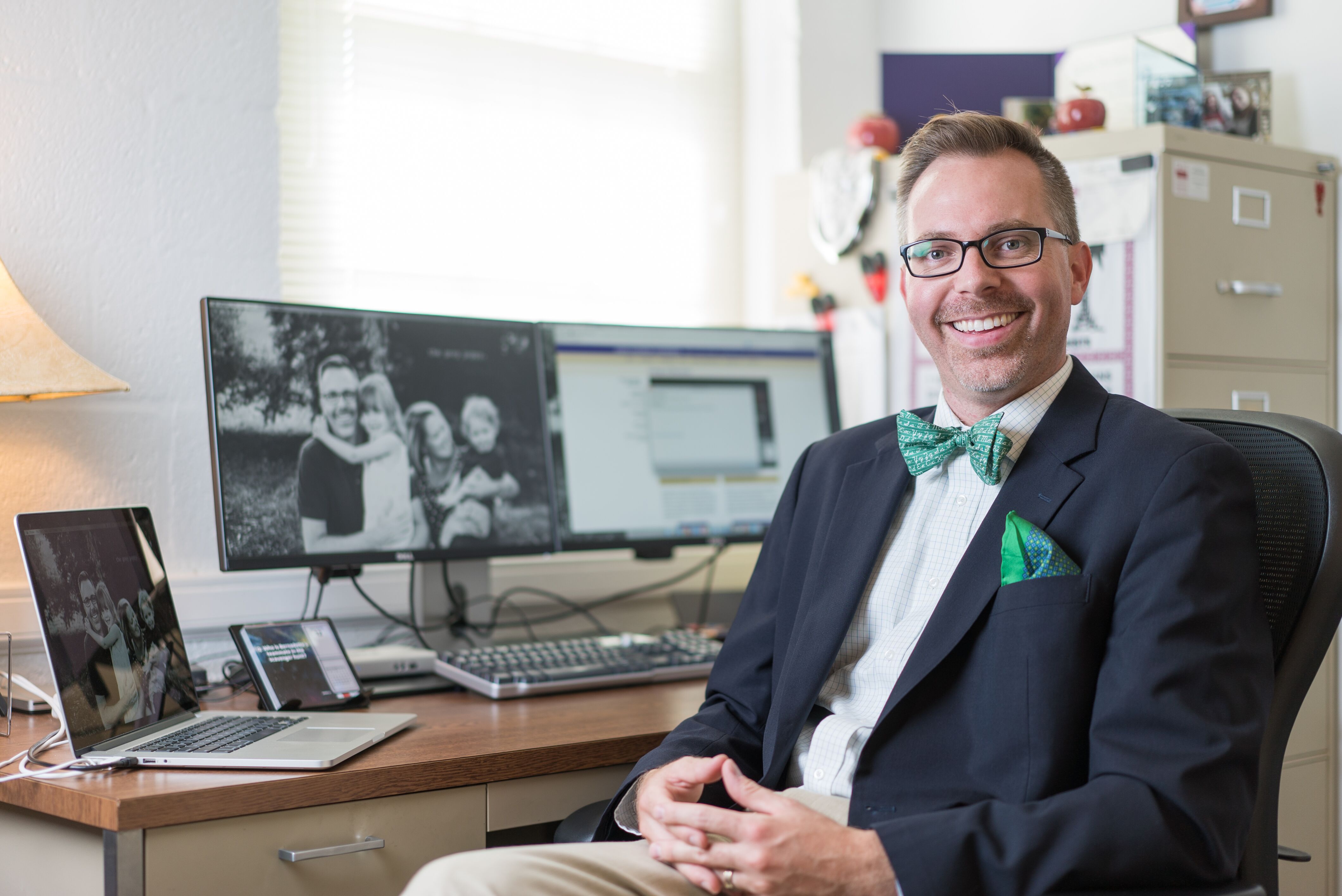Faculty Expert Q&A: John Almarode
A conversation with John Almarode
JMU Headlines
With expertise in the science of how we learn, Almarode studies what science says about how learners acquire and consolidate information and translates that research into strategies and approaches that work best in schools and classrooms. With a focus on factors that have the greatest impact on student growth and achievement, Almarode looks at each student as an unique individual with their own set of wildly diverse and specific learning patterns— each affecting the ways they show up to the classroom and learn.
Q: What do you enjoy about teaching or working in higher education?
A: Working at James Madison University allows me to bring together my passion for teaching, my intellectual curiosity about how students learn, and my drive to translate research into classroom practice with PreK – 12 colleagues. JMU, in particular, the College of Education has provided the perfect environment for me to develop and attain my professional goals while at the same time introducing me to students and colleagues that would shape who I am as human being.
Q: How did you become interested in your research area?
A: My interests in how students learn and the fostering, nurturing, and sustaining of student engagement in the classroom came from my own experiences as a math and science teacher. There were many days that ended with me knowing that I did not have the impact on my students’ growth and achievement that I set out to have on that given day. Yet, I knew this was not their [the students] fault. After all, I was the teacher. This lack of impact led me to ask questions about my own teaching. Did I make the best decisions today, the decisions that were most likely going to have an impact on my students learning? For example, did I select the best approach for today? Did I make the learning clear? What about the asking and answering of questions?
This led me to want to know more. My research focuses on the factors or influences that are associated with effective teaching and learning. Specifically, what works, what works best, and what works best when?
Q: Your research is a common topic of public discussion. What is the most exciting development in your area today?
A: This is an easy one. The most exciting development in the area of teaching and learning is that we are now able to answer two very important questions: (1) what is an effective teacher? And (2) what is an effective learner? This is the result of an explosion in education research over the past 20 years. Although we are still struggling with the implementation of these findings into classroom practice, we are now, more clear than ever, about the target. Plus, I would argue the implementation will always be a struggle. After all, we are talking about children, not widgets. The struggle is what makes this profession so beautiful – the uniqueness of each student, class, grade-level, and school. We should embrace this and not cast this complexity as a downside of teaching and learning.
Q: What are some challenges you can foresee in your research in the coming year?
A: The challenges associated with what I do are the same challenges faced by every teacher, teacher leader, and administrator – implementation and sustainability. The expectations and pressure on public schools is not going away and will likely increase. Much of this is undeserved, but some is deserved and should be welcomed. In the face of these expectations and pressure, how do we implement the latest findings about how we learn, what works, what works best, and what works best when in a way that has the greatest impact and the most feasible route sustained change. The teachers, teacher leaders, and administrators in our schools work so hard. And, they have no time to spare in the day. Therefore, we have to ensure that the more we learn about how we learn and what works best when actually makes the art and science of teaching more efficient and effect – not just the piling on of one more thing. Somethings have overstayed their welcome in our schools and classrooms and need to go – to be replaced by something better, or nothing at all.
Q: If you could tell the public one thing about your area of expertise, what would it be?
A: My goal, my lifelong ambition, what gets me out of bed every morning and ready to work is knowing that the work we are doing will make a major difference in the lives of students and the work of teachers.
Q: What are your interests outside of your work at JMU?
A: I have two children. Tessa is seven years old and Jackson is four. They are at that awesome stage in life where their interests become my interests. Whether doing arts and crafts, playing with Paw Patrol characters, or reading Pete the Cat books, my wife and I are right in the middle of the activity. Plus, until they can drive, this includes serving as a taxi service for their outside interests.
If I am not doing that, I am reading, writing, or working in the yard.
